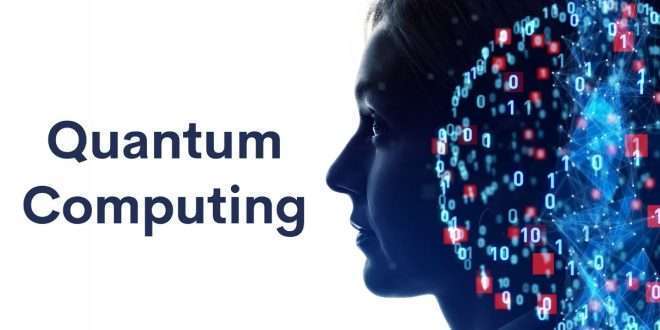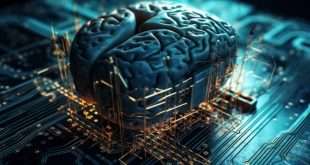Welcome to the future of computing! In this blog, we delve into the extraordinary world of quantum computing, a revolutionary technology that is set to transform the tech landscape as we know it. Unlike classical computers, which rely on bits to process information, quantum computers harness the power of qubits and superposition to perform calculations at unimaginable speeds. Join us as we embark on a fascinating journey to uncover the potential, advancements, and challenges of quantum computing.
Understanding Quantum Computing
What is Quantum Computing?
Quantum computing is a cutting-edge field of study that exploits the principles of quantum mechanics to process information. Traditional computers use bits, represented as 0s and 1s, as the fundamental unit of information. However, quantum computers use qubits, which can exist in multiple states simultaneously through a phenomenon called superposition. This enables quantum computers to perform complex calculations at an exponential rate, making them exponentially more powerful than classical computers.
How Quantum Computing Works
Quantum computing operates based on two fundamental principles: superposition and entanglement. Superposition allows qubits to exist in multiple states at once, exponentially increasing computing possibilities. Entanglement, on the other hand, ensures that the state of one qubit directly affects another, even if they are separated by vast distances. This entangled behavior enables quantum computers to solve problems that are currently beyond the reach of classical computers.
Advancements in Quantum Computing
Over the past few years, quantum computing has made significant strides. Tech giants like IBM, Google, and Microsoft have invested heavily in quantum research, leading to the development of quantum processors with increasing qubit counts and error correction capabilities. Furthermore, breakthroughs in quantum algorithms have paved the way for solving real-world problems, such as optimizing supply chains, simulating complex molecules, and improving machine learning models.
The Impact of Quantum Computing
Disrupting Cryptography
The rise of quantum computing also brings concerns about its impact on cybersecurity. Quantum computers have the potential to crack currently unbreakable cryptographic algorithms, posing a significant risk to sensitive data and online security. As a result, researchers are working on quantum-resistant encryption methods to safeguard digital communication in the post-quantum era.
Accelerating Drug Discovery
One of the most promising applications of quantum computing lies in drug discovery and development. Quantum computers can simulate complex molecular interactions with unprecedented accuracy, reducing the time and cost required to identify potential drug candidates. This advancement has the potential to revolutionize the pharmaceutical industry, leading to faster and more effective drug development.
Optimizing Machine Learning
Quantum computing can also enhance machine learning algorithms, enabling faster and more precise data analysis. By leveraging quantum parallelism, quantum machine learning algorithms can process vast datasets and identify patterns and correlations that classical computers would take years to compute.
Transforming Finance and Optimization
In the financial sector, quantum computing can revolutionize portfolio optimization, risk analysis, and fraud detection. The ability to solve complex optimization problems in near real-time can lead to better investment strategies and increased efficiency in financial operations.
Challenges and Limitations
Quantum Decoherence
Quantum computing faces a significant hurdle in the form of quantum decoherence. Qubits are highly sensitive to their environment and can lose their quantum state due to interference, leading to errors in computations. Overcoming decoherence is a critical challenge in building stable and scalable quantum computers.
Quantum Error Correction
Quantum error correction is essential for maintaining the accuracy of quantum computations. Error rates in quantum systems need to be significantly reduced to ensure reliable and practical quantum computing. Researchers are actively working on error-correcting codes to address this limitation.
Resource Intensive
Quantum computers require extremely low temperatures and controlled environments, making them resource-intensive and expensive to build and operate. As the technology advances, the focus is on developing more compact and robust quantum processors.
Final Words
In conclusion, the rise of quantum computing has opened up a new era in technology. With its unprecedented computational power, quantum computing holds the potential to transform industries and solve problems that are currently beyond the capabilities of classical computers. However, challenges such as quantum decoherence and error correction must be addressed to unleash the full potential of quantum computing.
Commonly Asked Questions
Q1: How does quantum computing differ from classical computing?
A: Quantum computing uses qubits and superposition to process information, while classical computing relies on bits represented as 0s and 1s.
Q2: What are the practical applications of quantum computing?
A: Quantum computing can revolutionize cryptography, drug discovery, machine learning, and optimization in various industries.
Q3: Is quantum computing a threat to cybersecurity?
A: Quantum computing can potentially break current cryptographic algorithms, leading to concerns about data security. Researchers are developing quantum-resistant encryption methods.
Q4: What challenges does quantum computing face?
A: Quantum decoherence, quantum error correction, and resource-intensive requirements are some of the main challenges in quantum computing.
Q5: How will quantum computing impact finance and optimization?
A: Quantum computing can significantly enhance portfolio optimization, risk analysis, and fraud detection in the financial sector.
 webfily
webfily



